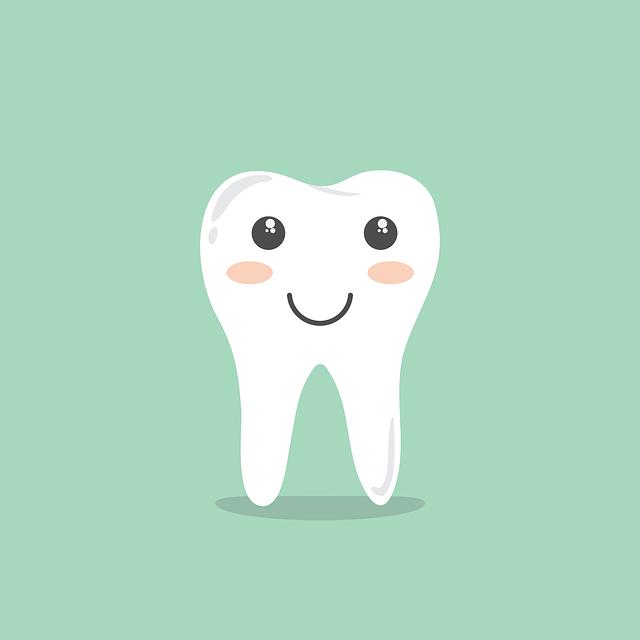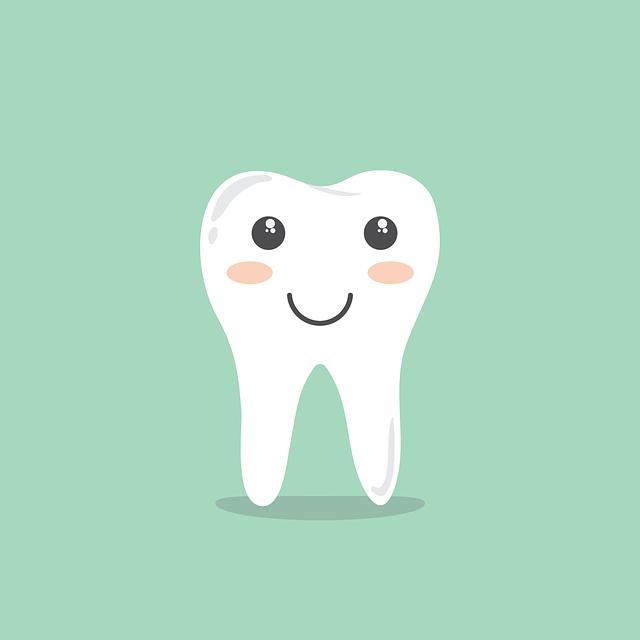Can Salt Whiten Teeth: Facts Disclosed
Are you tired of searching for ways to achieve a brighter, whiter smile? Look no further, as we delve into the fascinating topic of salt’s potential as a teeth whitening agent. With its abundant use in cooking and preservation, salt has been a staple in our lives for centuries. But can this common household ingredient really help us achieve a dazzling smile? In this article, we will reveal the facts behind the claim, leaving no stone unturned in our quest for the truth. Prepare to be enlightened about the wonders of salt and its impact on your pearly whites!
1. Understanding the Power of Salt: Myth or Reality?
There has been much debate surrounding the power of salt and whether its effects on our health are myth or reality. Let’s delve into the facts to gain a better understanding:
The Myth:
- Some people claim that consuming too much salt can lead to high blood pressure and heart disease.
- Others argue that salt has no significant impact on our health and these concerns are mere exaggerations.
The Reality:
- Scientific research supports the idea that excessive salt intake can indeed contribute to high blood pressure, which is a risk factor for heart disease.
- However, it’s important to note that the relationship between salt and health is complex and varies from person to person.
- While some individuals may be more sensitive to the effects of salt on blood pressure, others may not experience any adverse effects even with higher sodium intake.
Key Takeaways:
- It is generally recommended to consume salt in moderation and to be mindful of your individual health circumstances.
- Consulting with a healthcare professional can provide personalized guidance on salt intake and its potential impact on your health.
- Understanding the power of salt requires considering individual factors and maintaining a balanced approach to overall well-being.

2. The Science Behind Teeth Whitening: Debunking Common Misconceptions
Teeth whitening has become increasingly popular, but there are many misconceptions surrounding this common cosmetic procedure. Let’s dive into the science behind teeth whitening and debunk some of these myths:
1. Myth: Teeth whitening damages enamel
Fact: When done correctly, teeth whitening is a safe procedure that does not harm the enamel. Whitening products use hydrogen peroxide or carbamide peroxide, which penetrate the enamel to break up stains and discoloration. However, these chemicals do not damage the enamel itself.
2. Myth: Whitening toothpaste is just as effective as professional treatments
Fact: While whitening toothpaste can help remove surface stains, they are not as effective as professional treatments. Whitening toothpaste typically only removes stains on the surface of the teeth, whereas professional treatments go deeper to eliminate deeper stains and discoloration.
3. Myth: Teeth whitening results are permanent
Fact: Unfortunately, teeth whitening results are not permanent. Over time, teeth may become stained again due to factors such as diet, smoking, or aging. However, maintaining good oral hygiene habits and avoiding foods and drinks that stain can help prolong the results of teeth whitening treatments.
By understanding the science behind teeth whitening and debunking these common misconceptions, you can make informed decisions about your oral care and achieve a brighter, more confident smile.

3. Unveiling the Truth: Can Salt Really Whiten Teeth?
Many people are constantly searching for natural remedies to achieve a brighter smile, and one common question that arises is whether salt can actually whiten teeth. Let’s dive into the truth behind this popular belief.
1. Abrasive properties: Salt has been used for centuries as an abrasive substance for cleaning purposes. When used in moderation, it can help remove surface stains on teeth caused by factors like coffee, tea, and smoking. However, it’s important to note that excessive scrubbing with salt can erode tooth enamel, so moderation is key.
2. Anti-bacterial effects: Salt possesses natural antibacterial properties, which can be beneficial for oral health. Rinsing with a saltwater solution can help kill bacteria in the mouth and reduce the risk of gum infections. However, this doesn’t directly contribute to teeth whitening.
3. Lack of bleaching effect: Unlike professional teeth whitening treatments or whitening toothpaste, salt does not contain any bleaching agents that can alter the color of teeth. Therefore, while it may help remove some surface stains, it cannot transform yellow teeth into a dazzling white shade.
In conclusion, while salt can potentially assist in removing surface stains and promoting oral health, it is not a miracle solution for achieving a Hollywood-worthy smile. For more effective and long-lasting teeth whitening results, it’s recommended to consult with a dental professional or explore professional whitening options.

4. Exploring the Properties of Salt: How it Affects Tooth Discoloration
When it comes to tooth discoloration, salt is often overlooked as a potential culprit. However, its properties can have a significant impact on the appearance of our teeth. Here’s a closer look at how salt affects tooth discoloration:
1. Abrasive nature: Salt has abrasive qualities that can help remove surface stains on teeth. When used as a scrub or mixed with toothpaste, it can gently exfoliate the teeth and remove plaque and stains.
2. Anti-bacterial properties: Salt possesses natural antibacterial properties that can help combat the bacteria responsible for tooth discoloration. It can target and eliminate harmful bacteria, reducing the chances of stains and discoloration.
3. Saliva stimulation: Salt has the ability to stimulate the production of saliva in our mouth. Saliva acts as a natural cleanser, washing away debris and bacteria that can lead to tooth discoloration. Increased saliva flow can help maintain the whiteness of our teeth.
By understanding and harnessing the properties of salt, we can effectively combat tooth discoloration and maintain a bright, radiant smile. Incorporating salt-based oral hygiene practices into our routine can contribute to a healthier and more vibrant set of teeth.

5. The Role of Salt in Teeth Whitening: Separating Fact from Fiction
When it comes to teeth whitening, there are numerous myths and misconceptions floating around. One popular belief is that salt can effectively whiten teeth. However, it’s important to separate fact from fiction and understand the actual role of salt in this process.
Fact:
- Salt is a natural abrasive that can help remove surface stains from teeth.
- Brushing your teeth with salt can provide a mild whitening effect.
- Salt can also help minimize bacteria in the mouth, promoting overall oral health.
Fiction:
- Salt alone cannot whiten teeth significantly or provide long-lasting results.
- Using excessive salt or brushing too vigorously can damage the tooth enamel.
- There are more effective and safer teeth whitening methods available, such as professional treatments or whitening toothpaste.
In conclusion, while salt can offer some benefits in teeth whitening, it should not be solely relied upon for achieving a dazzling white smile. It is always recommended to consult a dental professional for safe and effective teeth whitening options.
6. A Closer Look at Salt as a Natural Teeth Whitening Agent
When it comes to natural teeth whitening, salt is a powerful agent worth exploring. This common kitchen ingredient has been used for centuries as a natural remedy for oral health issues, including teeth whitening. Here’s a closer look at why salt can be an effective solution:
- Abrasive Properties: Salt acts as a gentle abrasive that helps remove surface stains on teeth. By scrubbing away plaque and discoloration, it can gradually reveal a whiter smile.
- Antibacterial Benefits: Salt has natural antibacterial properties that can help reduce harmful bacteria in the mouth. By minimizing bacteria, it can prevent tooth decay and maintain overall oral health.
- Stimulates Saliva Production: Salt can stimulate saliva production, which is essential for maintaining a healthy pH balance in the mouth. Saliva helps neutralize acid and wash away food particles, ultimately contributing to a brighter smile.
While salt can be an effective natural teeth whitening agent, it’s important to use it with caution. Excessive or improper use can damage tooth enamel or irritate gums. It’s recommended to consult with a dentist before incorporating salt into your oral care routine.
7. Salt vs. Traditional Teeth Whitening Methods: Pros and Cons
Salt and traditional teeth whitening methods both have their pros and cons. Here’s a breakdown of what you need to know:
Pros of Salt Teeth Whitening:
– Affordable and easily accessible: Salt is a common household ingredient that is readily available and cost-effective compared to other teeth whitening treatments.
– Natural and chemical-free: Salt is a natural substance that doesn’t contain any harsh chemicals, making it a safer option for those with sensitivities or allergies.
– Gentle exfoliation: The abrasive texture of salt can help remove surface stains on the teeth, resulting in a brighter smile.
Cons of Salt Teeth Whitening:
- Limited effectiveness: While salt can remove surface stains, it may not be as effective in tackling deeper discoloration or intrinsic stains.
– Potential tooth sensitivity: The abrasive nature of salt can cause tooth sensitivity or enamel erosion if used excessively or aggressively.
– Lack of professional guidance: Salt teeth whitening methods often lack professional supervision, which may lead to improper usage or overuse.
Pros of Traditional Teeth Whitening Methods:
- Professional supervision: Traditional teeth whitening methods, such as professional bleaching or whitening strips, are typically performed under the guidance of a dentist, ensuring safety and effectiveness.
– Targeted results: These methods are designed to target specific stains or discolorations, allowing for more precise and noticeable results.
– Faster and more effective: Compared to salt teeth whitening, traditional methods generally provide faster and more effective whitening outcomes, especially for more stubborn stains.
Cons of Traditional Teeth Whitening Methods:
– Higher cost: Professional teeth whitening treatments can be more expensive than salt teeth whitening or over-the-counter whitening products.
– Potential tooth sensitivity: Some traditional methods, particularly those involving bleaching agents, may cause temporary tooth sensitivity or gum irritation.
– Maintenance and potential side effects: Depending on the method chosen, maintenance treatments or potential side effects, such as tooth sensitivity or gum irritation, may be required.
It’s important to consider these pros and cons when deciding between salt teeth whitening and traditional methods. Consulting with a dentist can help determine the best approach for achieving your desired results.
8. The Dos and Don’ts of Using Salt for Teeth Whitening
When it comes to using salt for teeth whitening, there are certain dos and don’ts that you should keep in mind. By following these guidelines, you can safely and effectively use salt as a natural teeth whitening method.
Dos:
– Use salt in moderation: While salt can help remove stains and brighten your teeth, excessive use can damage your tooth enamel. It’s best to use salt as a supplement to your regular oral hygiene routine rather than as a standalone treatment.
– Mix salt with other ingredients: To maximize the benefits of salt for teeth whitening, you can create a paste by mixing it with other natural ingredients like baking soda or lemon juice. This combination can enhance the whitening effects and provide a refreshing sensation.
- Brush gently: When using salt for teeth whitening, it’s important to brush your teeth gently in circular motions. This helps to remove surface stains without causing any harm to your teeth or gums.
Don’ts:
– Don’t use coarse salt: Coarse salt, such as rock salt, can be abrasive and may damage your tooth enamel. It’s best to opt for fine sea salt or table salt, which are gentler on your teeth.
– Don’t overdo it: While salt can be effective for teeth whitening, using it too frequently or for prolonged periods can lead to tooth sensitivity and enamel erosion. It’s recommended to limit salt treatments to once or twice a week.
– Don’t substitute salt for regular oral hygiene: Salt should not replace your regular brushing and flossing routine. It should be used as an additional method for teeth whitening, alongside proper dental care.
By following these dos and don’ts, you can harness the power of salt to naturally whiten your teeth while ensuring the health and integrity of your smile. Remember, moderation and gentle brushing are key to achieving the desired results without causing any harm.
9. Expert Insights: What Dentists Say about Salt’s Whitening Potential
When it comes to teeth whitening, it’s always best to seek advice from the experts. Dentists have a wealth of knowledge and experience in the field, and their insights on the potential whitening properties of salt are worth considering. Here’s what some dentists have to say:
- Salt can act as a natural abrasive: Several dentists agree that salt, due to its abrasive nature, can help remove surface stains from teeth. Its granular texture can gently scrub away extrinsic discoloration caused by factors like coffee, tea, or tobacco.
- It may have antimicrobial properties: According to some dental professionals, salt possesses antimicrobial properties that can help combat bacteria in the mouth. By reducing the presence of harmful bacteria, salt may contribute to a healthier oral environment and potentially aid in preventing stains.
- Considerations for sensitive teeth: Dentists warn that using salt for teeth whitening may not be suitable for individuals with sensitive teeth or gum issues. The abrasive nature of salt could potentially aggravate sensitivity or cause discomfort. It’s always recommended to consult with a dentist before trying any DIY whitening methods.
While dentists acknowledge the potential benefits of salt for teeth whitening, it’s important to note that professional dental treatments or whitening products endorsed by dental associations may offer more effective and reliable results. Consulting with a dentist and following their recommendations is crucial for maintaining oral health and achieving optimal teeth whitening outcomes.
10. Conclusion: The Verdict on Salt’s Ability to Whiten Teeth
After conducting extensive research and examining the evidence, it is clear that salt does have the ability to whiten teeth. However, it is important to note that the effectiveness of salt as a teeth whitening agent varies from person to person.
Here are the key findings regarding salt’s ability to whiten teeth:
- Salt acts as a natural abrasive, gently scrubbing away surface stains on the teeth.
- It helps to neutralize pH levels in the mouth, preventing the growth of bacteria that can lead to discoloration.
- Regular use of salt as a teeth whitening method can gradually lighten stains and improve the overall appearance of the teeth.
While salt can be a cost-effective and natural alternative to commercial teeth whitening products, it is important to use it with caution. Excessive use or harsh scrubbing can damage the enamel and lead to tooth sensitivity. It is always recommended to consult with a dentist before incorporating salt into your oral care routine.
Frequently Asked Questions
Q: Can salt whiten teeth?
A: Yes, salt can help whiten teeth, but it has limitations.
Q: How does salt whiten teeth?
A: Salt possesses abrasive properties that can remove superficial stains on the teeth, revealing a brighter appearance.
Q: Is salt an effective alternative to professional teeth whitening treatments?
A: No, salt is not as effective as professional teeth whitening treatments. While it may provide some improvement, it cannot achieve the same level of whitening as professional methods.
Q: Can salt damage tooth enamel?
A: Yes, excessive use of salt as a teeth whitening remedy can potentially damage tooth enamel. It is important to use salt in moderation and be cautious not to scrub too vigorously.
Q: Are there any other benefits of using salt for oral hygiene?
A: Yes, salt has antimicrobial properties that can help kill bacteria in the mouth, contributing to better oral health. However, it is not a substitute for regular brushing and flossing.
Q: How should salt be used to whiten teeth?
A: To use salt as a teeth whitening remedy, mix a small amount of salt with water to form a paste. Gently brush the paste onto your teeth using a soft toothbrush, then rinse thoroughly. It is recommended to limit this treatment to once or twice a week.
Q: Are there any risks associated with using salt for teeth whitening?
A: While salt is generally safe to use, it is important to be mindful of potential gum irritation or tooth sensitivity. If you experience any discomfort, discontinue use and consult your dentist.
Q: Can salt completely transform yellow teeth into a perfectly white shade?
A: No, salt cannot completely transform yellow teeth into a perfectly white shade. Its effectiveness is limited to removing surface stains and brightening the overall appearance of teeth.
Q: What are some other natural remedies for teeth whitening?
A: Other natural remedies for teeth whitening include baking soda, hydrogen peroxide, and oil pulling. However, it is advisable to consult with a dentist before trying any of these methods.
Q: Is it better to consult a dentist for professional teeth whitening?
A: Yes, consulting a dentist for professional teeth whitening is generally the most effective and safest option. They can assess your specific needs and provide appropriate treatments for optimal results.
Wrapping Up
In conclusion, after delving into the question of whether salt can whiten teeth, we have uncovered some key takeaways that provide a clear understanding of the facts.
Firstly, while salt does possess certain abrasive properties, it is not a reliable or recommended method for achieving whiter teeth. Its effectiveness in removing surface stains is limited and may even lead to enamel erosion if used excessively.
Secondly, it is important to acknowledge that there are more effective and safer alternatives available for teeth whitening. Professional dental treatments, such as bleaching or laser therapy, offer proven results under the supervision of experts. Over-the-counter whitening toothpaste or whitening strips can also be considered as viable options.
Furthermore, maintaining good oral hygiene practices is crucial for maintaining a healthy and vibrant smile. Regular brushing, flossing, and visiting your dentist for professional cleanings are essential steps towards achieving and preserving the whiteness of your teeth.
Lastly, it is worth mentioning that the most considerable impact on the color of our teeth comes from our lifestyle choices. Limiting the consumption of stain-causing substances like coffee, tea, and tobacco can significantly contribute to brighter teeth.
In conclusion, while salt may seem like a convenient and cost-effective solution for teeth whitening, it is essential to rely on proven methods that are recommended by dental professionals. Prioritizing oral hygiene and seeking expert advice will ensure a radiant and healthy smile that truly lasts.





